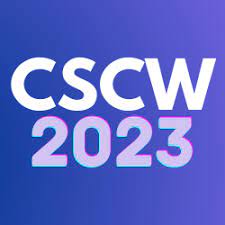

Computer-Supported Cooperative Work (CSCW) and related fields of research are advocating for comprehensive investigations into the role of data and data-driven technologies
to ensure responsible and appropriate usage within the context of migration, particularly for refugees and asylum seekers - a domain, set to be fundamentally reformed by
data-driven technologies. The growing production of new types of data about refugees and asylum seekers presents authorities with novel opportunities to incorporate such
data in their decision-making processes. Similarly, the ways through which refugees and asylum seekers are seeking information about healthcare, education, housing, peer support
and other services is increasingly being done in online and digital spaces. As such, this workshop aims to center the experience of refugee and asylum seeking experiences across
migration related information systems in order to unpack the ways through which digitalization and datafication impacts/transforms their daily lives and vice versa.
Find the full workshop proposal here.
We invite anyone interested in participating to submit a two to four-page position paper (or equivalent material such as e.g. zines) that addresses the workshop themes (see below).
We encourage you to discuss your interest in the themes, welcoming reports of (preliminary) empirical results, theoretically oriented pieces, as well as methodological reflections.
We also welcome submissions reflecting on questions related to datafication, digitization, and migration that we have not listed in our themes. Submissions will
be reviewed by the organisers and accepted based on the relevance and development of their chosen topic, as well as
participants’ potential to contribute to the workshop. We will have two submission deadlines, to allow for early bird registration to the CSCW conference (see important dates below).
If you have any questions, please reach out to Firaz Peer (firazpeer@uky.edu).
Please use the link to the Google form below for your submission:

The workshop will be clustered around 3-4 themes that we observe in the submissions we receive. Workshop participants and keynote speakers will present their work as a dialog within each thematic cluster. Each keynote presentation will be between 30-40 minutes and participant presentations will be 5 minutes each. The tentative schedule is suggested below. We will update this section once we have a list of participants and confirmed keynote speakers.
| Time | Activity |
|---|---|
| 09:00 AM - 09:10 AM | Introduction |
| 09:10 AM - 10:30 AM | Keynote 1 and participant presentations |
| 10:30 AM - 11:00 AM | Break |
| 11:00 AM - 12:00 PM | Keynote 2 and participant presentations |
| 12:00 PM - 01:30 PM | Lunch Break |
| 01:30 PM - 02:30 PM | Keynote 3 and participant presentations |
| 02:30 PM - 03:00 PM | Wrap-up and next steps |